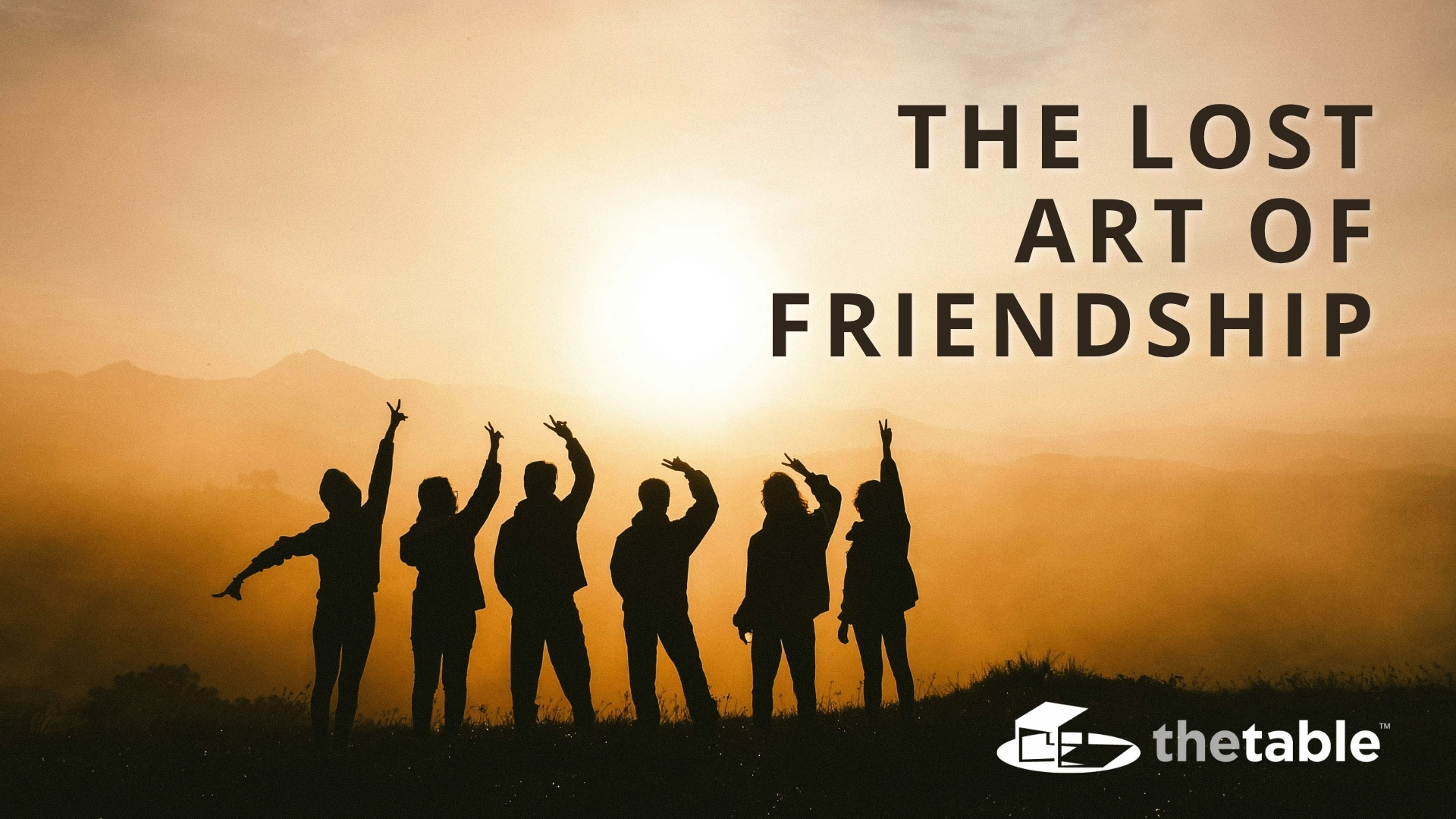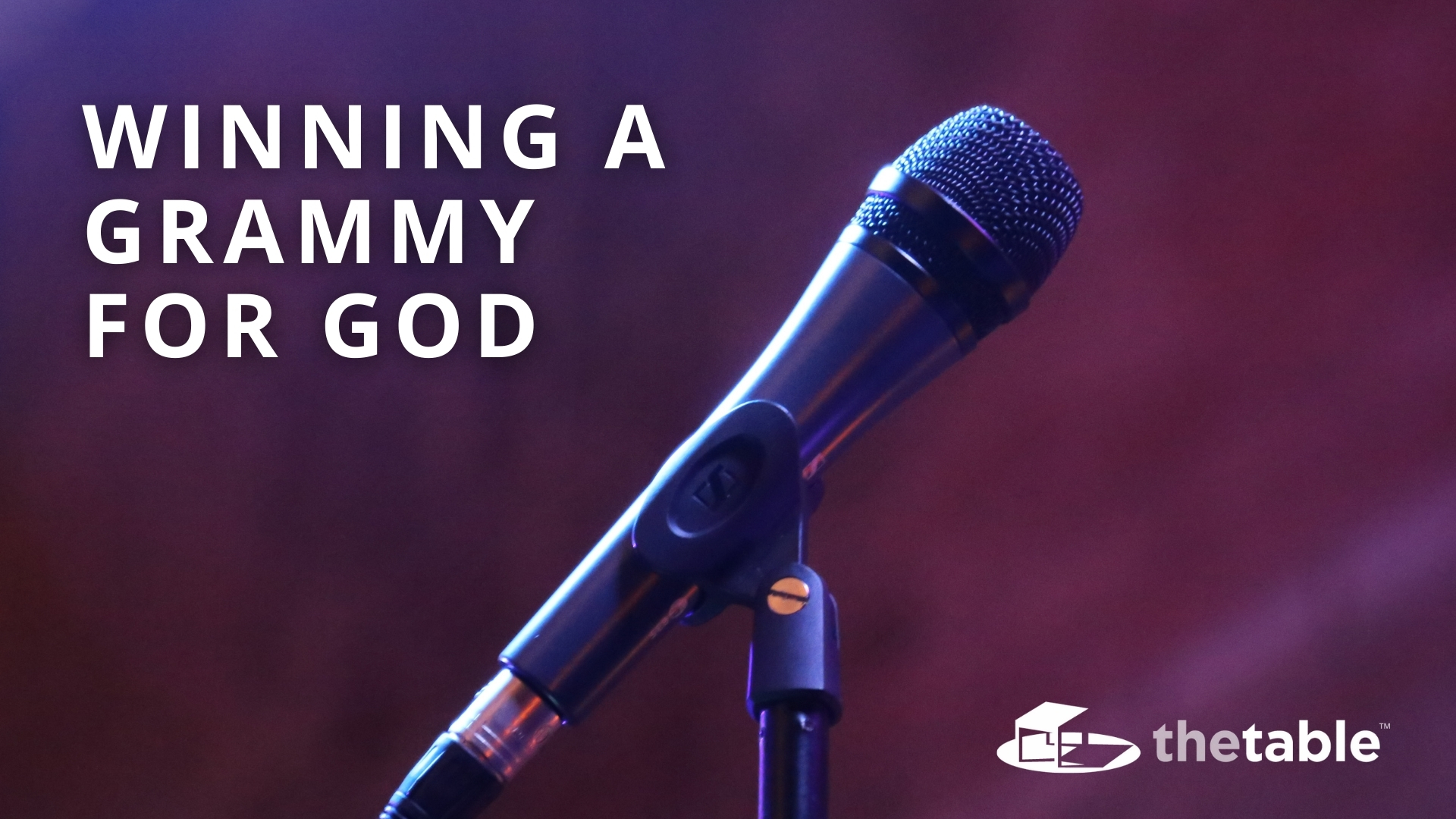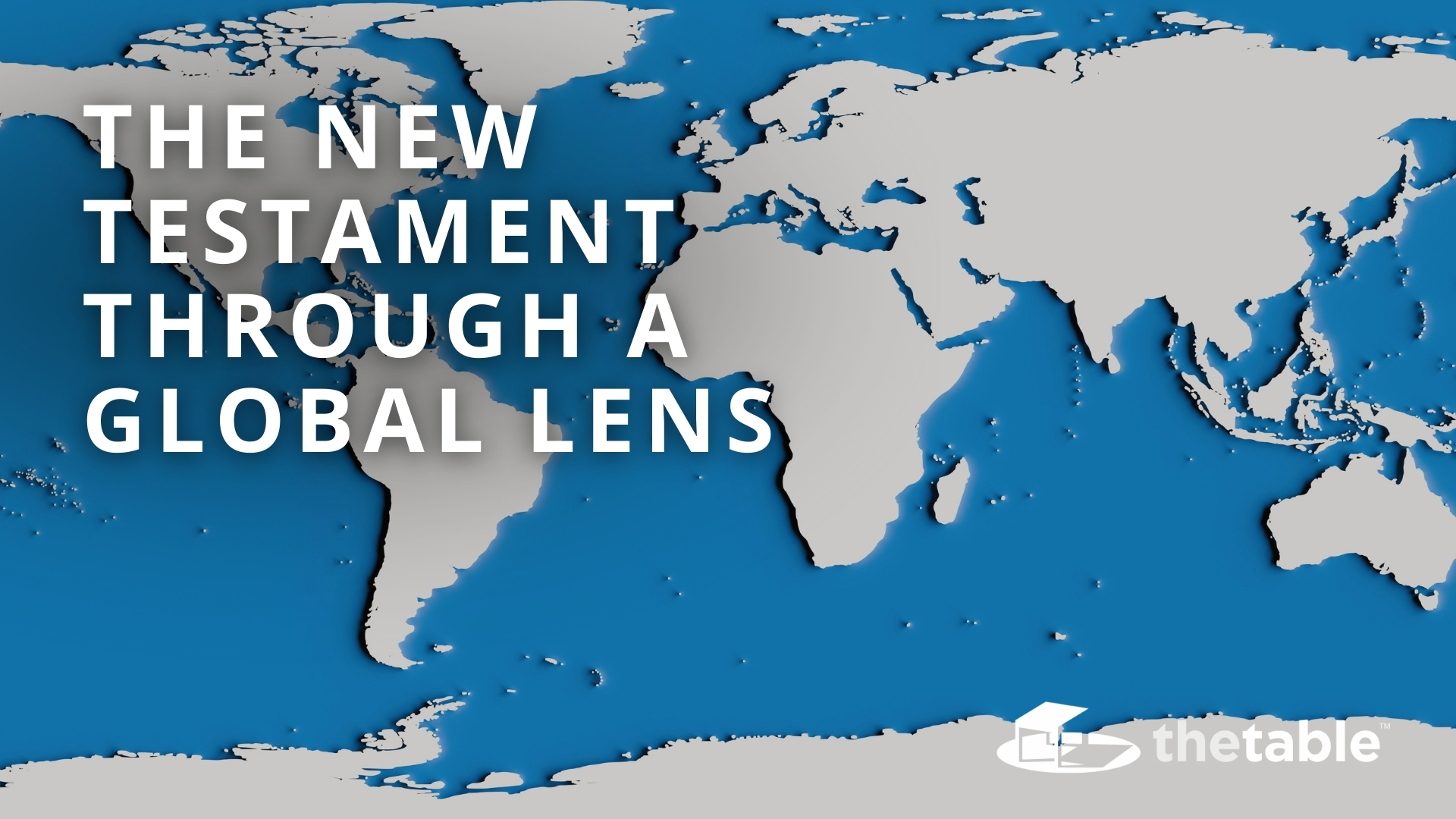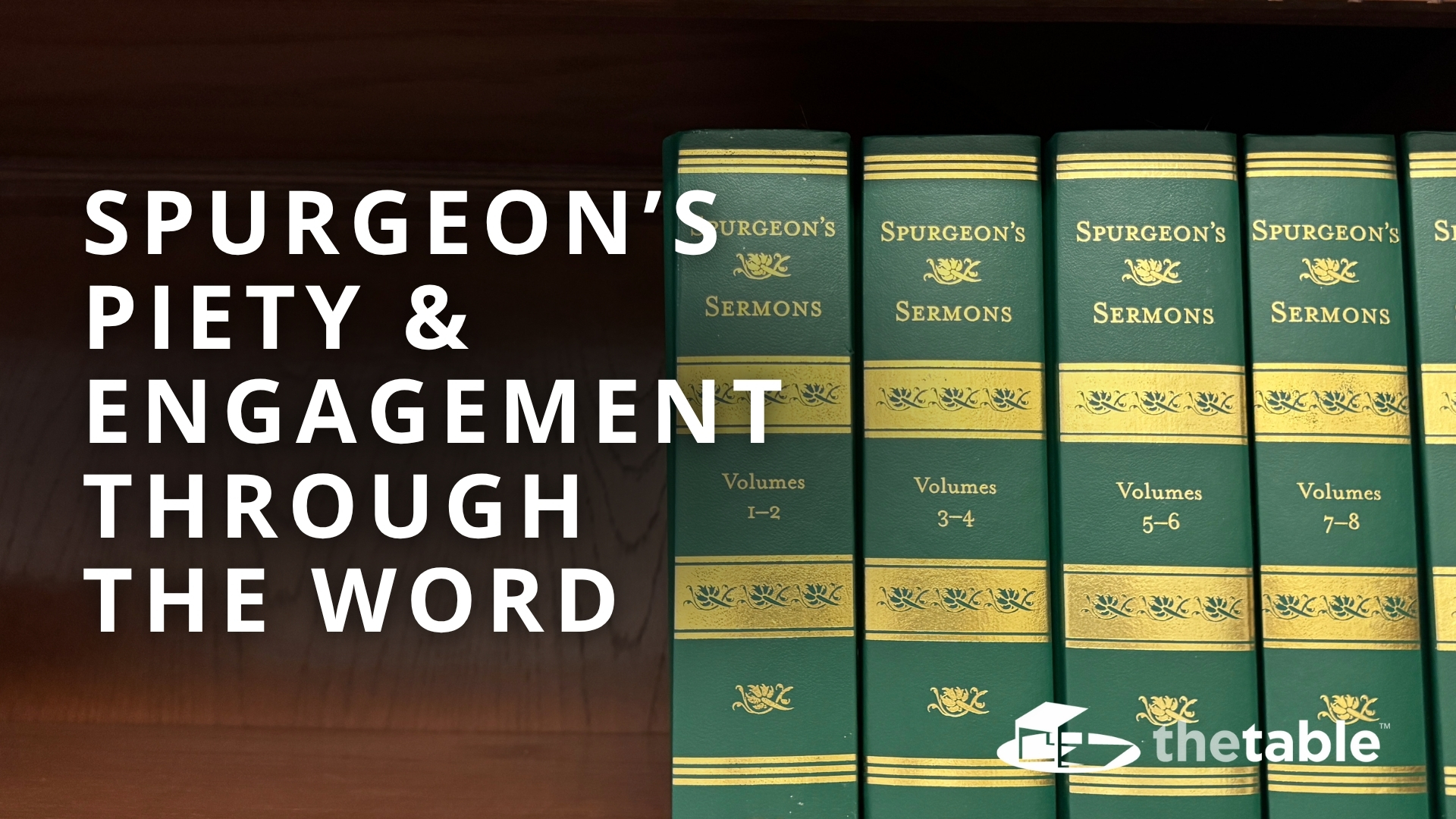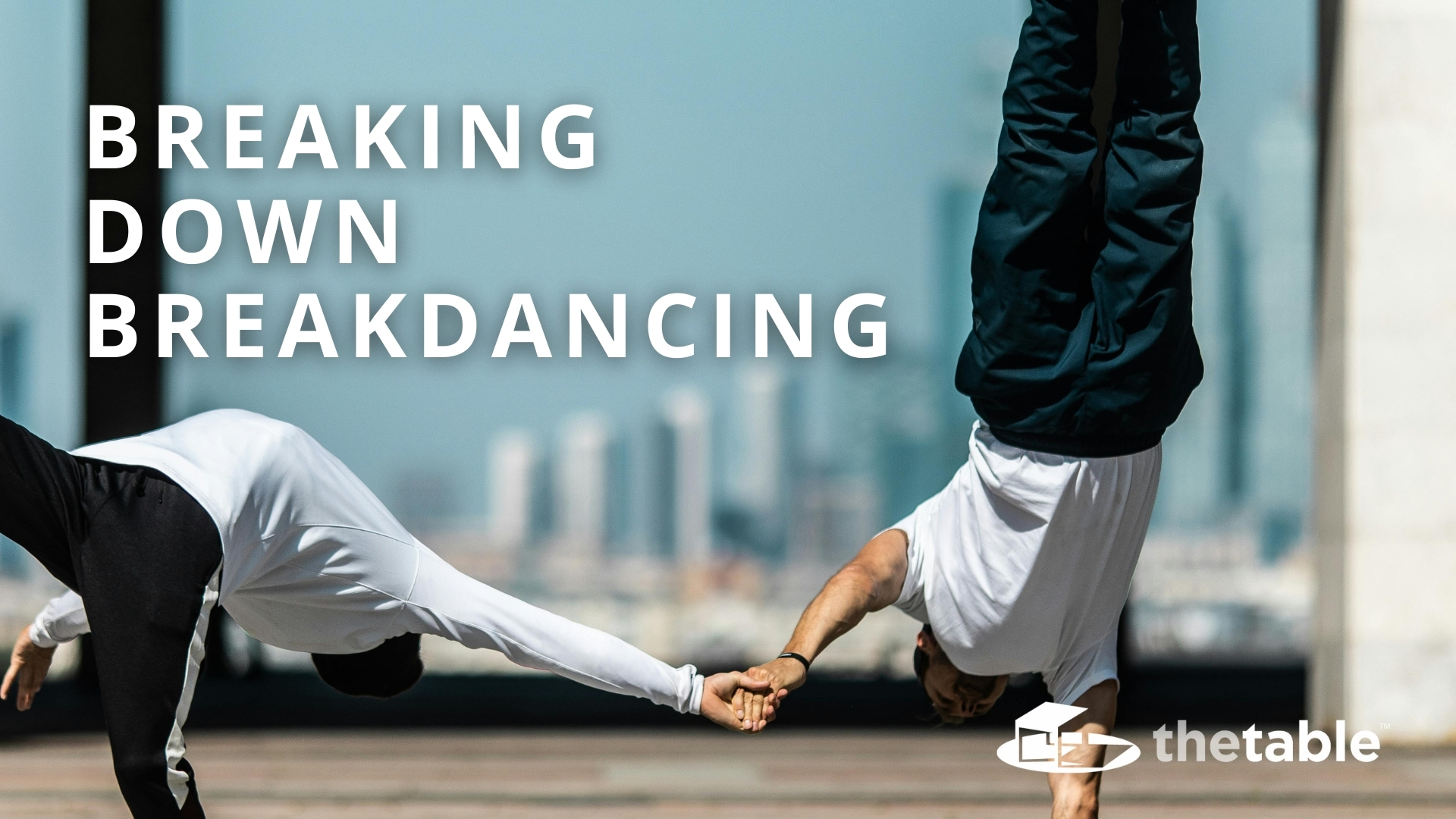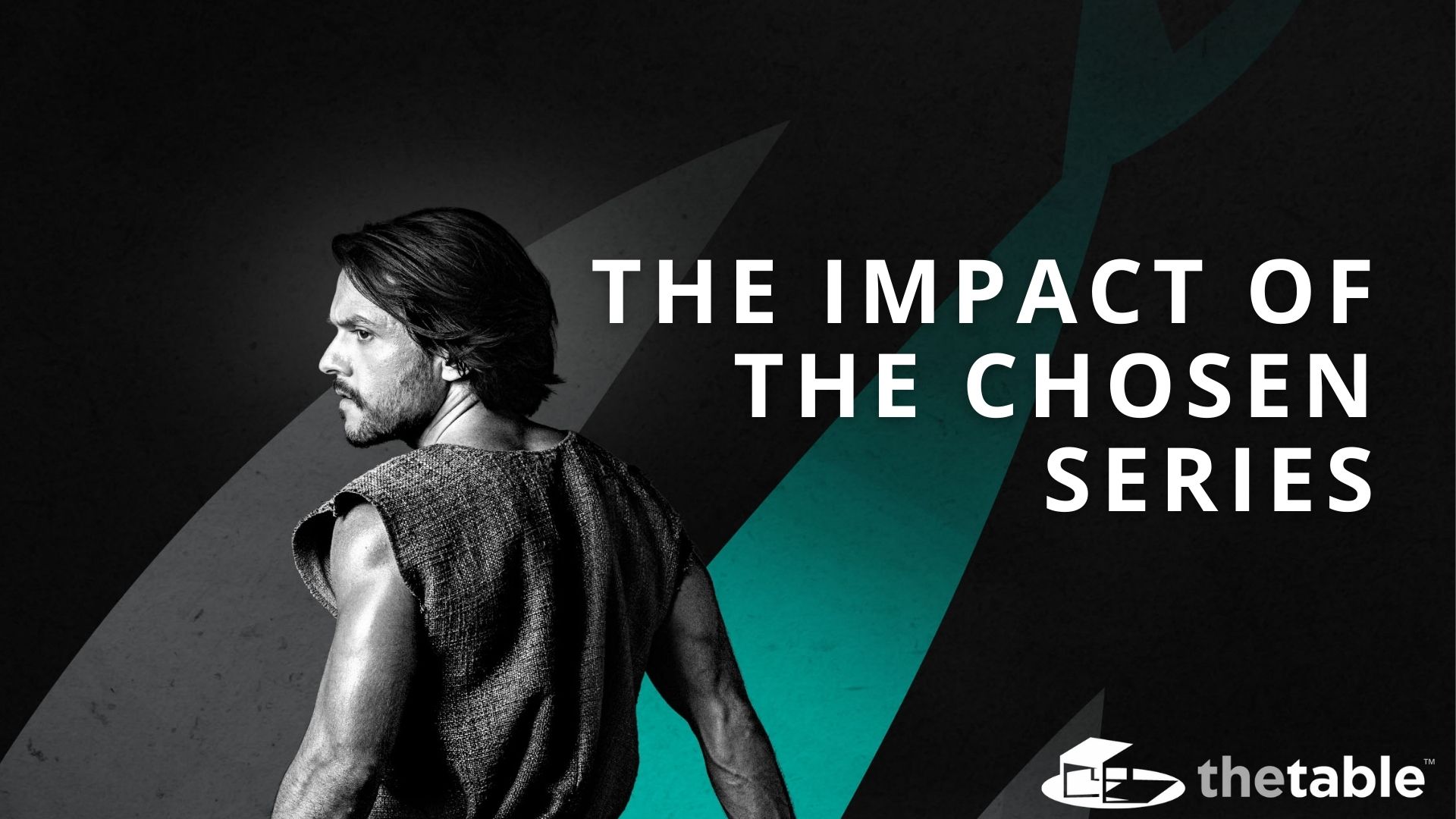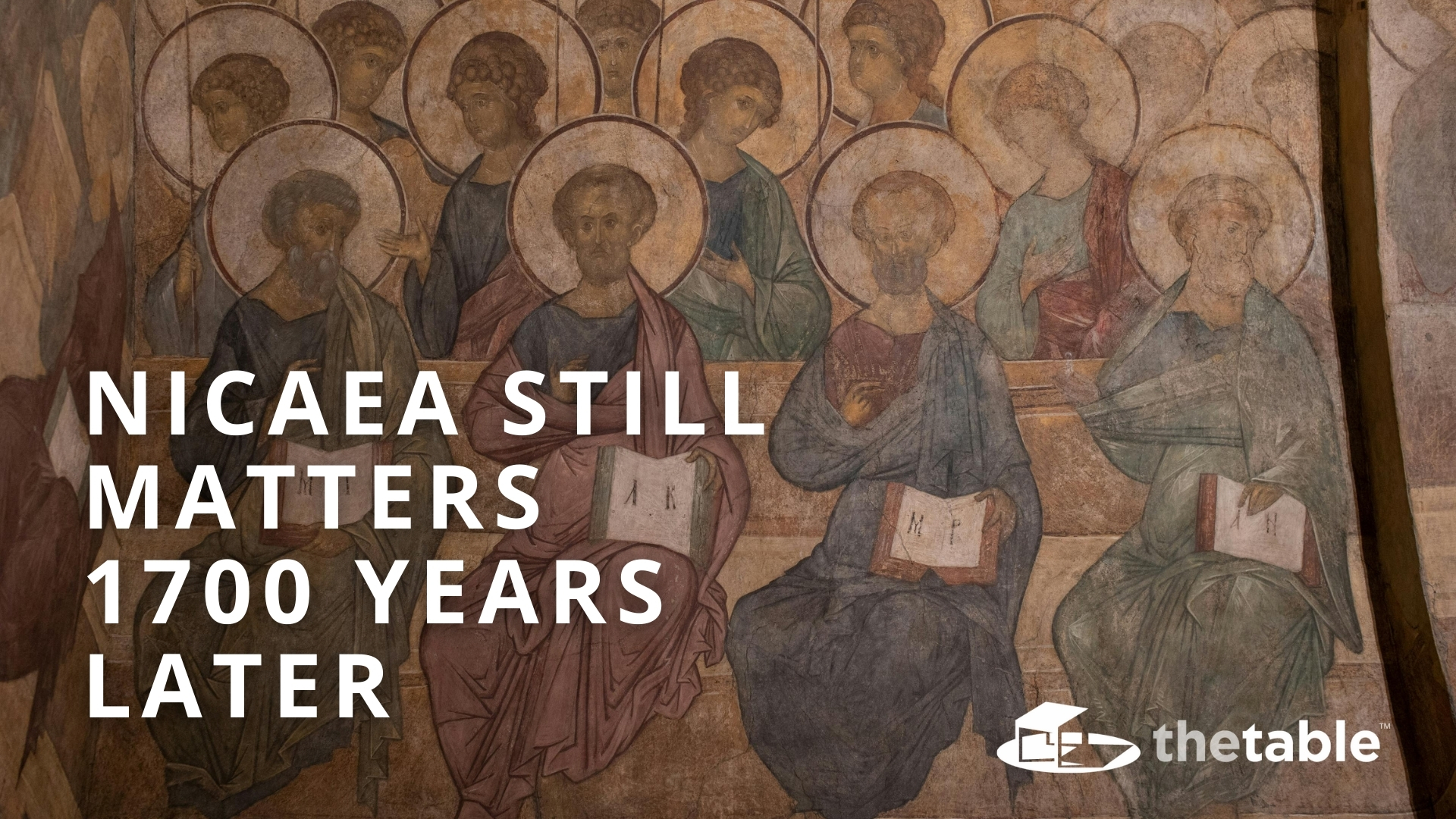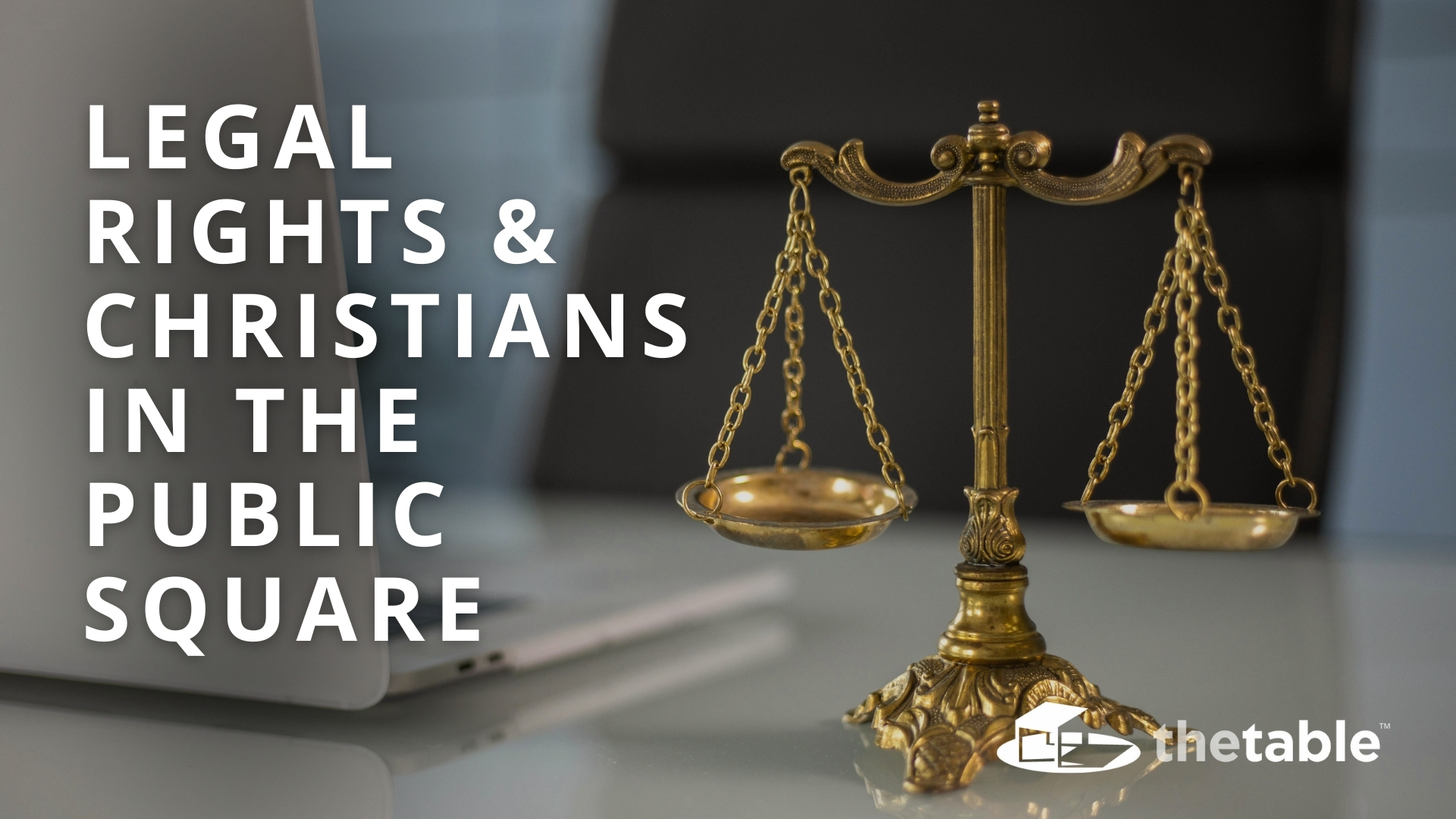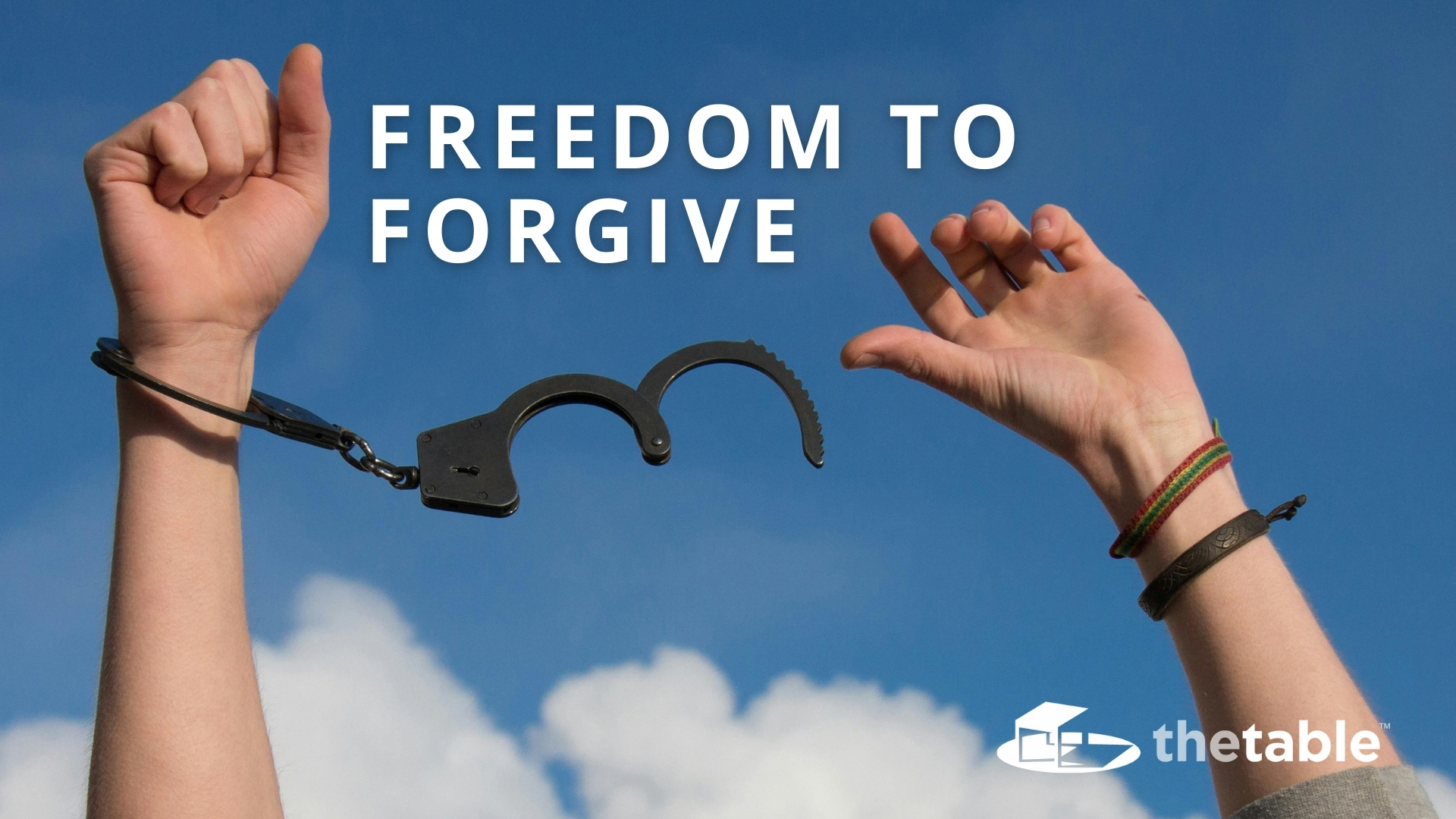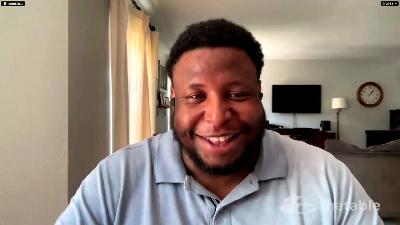The Lost Art of Friendship – Classic
Description
Kasey Olander:
Welcome to The Table, where we discuss issues of God and culture. I'm Kasey Olander. I'm the web content specialist here at the Hendricks Center at DTS. And today, we're talking about the topic of friendship.
I'm joined by two excellent guests. The first one is Drew Hunter. He's the teaching pastor at Zionsville Fellowship in Indiana, and he wrote a book, it's called Made For Friendship: The Relationship That Halves Our Sorrows And Doubles Our Joys. Drew, thanks for being with us today.
Drew Hunter:
Thanks for having me, and excited to talk about this together.
Kasey Olander:
Yeah, I'm looking forward to it. I'm also grateful that we're joined by Rebekkah Scott. Rebekkah is the online course coordinator for the online education department here at DTS, and she's also a PhD student working towards a dissertation on the subject of friendship. Thanks for being here.
Rebekkah Scott:
Thanks for having me. I'm excited about this.
Kasey Olander:
Yeah. Yeah, I think it'll be a lot of fun. Friendship is one of those interesting things that I think a lot of us take for granted. A lot of us would say that we have friends, but we don't think much about it. We don't think very deeply about what does it actually mean to have a friend or to be a friend. Everyone has their own concept of friendship. Even children have a concept of friendship. They kind of know what friends are and have some sort of idea about what that's supposed to look like, but we don't always stop to think deeply about it. I think I want to open up talking to each of you about, how did you guys really begin reflecting on this idea of friendship? Why is it something that we should even take the time to consider? We'll start with you. How about you, Drew?
Drew Hunter:
Sure. Yeah. There's a few things that come to mind. One of them is, I think back to when this topic as a focus of study became important to me. It was about 11 or maybe 12 years ago now, and I've had good friends in different seasons of my life and moved around a little bit growing up, so I had to kind of and then maintain friendships like that, but I was just really grateful for close friends. But then, about 12 years ago, I was studying the Book of Proverbs to teach it, and I just sat down and read through the book and I was collecting the themes. I wanted to have messages on the themes that were most important in the Book of Proverbs rather than me just bringing topics to it to look for, and I was not expecting friendship to be one of the most important themes of the book.
Money would be obvious, of course, wisdom and things like this, and maybe relationships in general, but I was struck by how many very specific and pointed things were said about friendship in that book. So then, that week that I spent studying that theme more deeply in friendship in Proverbs, led me to also think about John 15 and Jesus calling his disciples and us his friends. And I just realized, at some point that week, I don't think I've taken friends for granted per se, but I've never really stopped to think about, what is friendship? Why is it important? How much do I really value this? And then, to think of Jesus as a friend, of course, who knows how many times I had read that in the gospel of John, but I was realized I was not really relating to him explicitly, intentionally, consciously, in terms of friendship.
So that week really changed my life because, ever since there, the topic, I just haven't been able to let go of it because it's just been such an increased joy to think about the value of friendship, and then, value my friends more and be more intentional about friendships and recognize the rich blessings that are in life because of it and talk to other people about this too. And then, of course, relating with Jesus on terms of friendship has been a life changer for me too. That was the week that it became really important to me to be intentional about thinking about friendship.
Kasey Olander:
That's awesome. I love that it was a surprise to you. You went to scripture not expecting to find that, but then, you were like, "Wait a minute. This is something that I actually need to really reflect on."
Drew Hunter:
Yeah.
Kasey Olander:
Yeah, that's awesome. What about you, Rebekkah? How did you start getting into this?
Rebekkah Scott:
Yeah, that's so cool, Drew. I like how your discovery of friendship came out of a study of the Bible, out of Proverbs and everything else it had to say. I think I came at it from the other angle of lived experience, more. As a child, friendship was very important to me. My friends were important to me, and that's acceptable in the context of childhood. But as I grew and I went to college and I became an adult, I started to grow very slowly in this awareness that was a little odd. I sensed, I intuited that friendship was something very important, very necessary, something that deserved to be invested in, but I didn't have the vocabulary to talk about it, and neither did the people around me, it seemed.
There was no ability to speak meaningfully about friendship, so I became frustrated. I wanted a deeper context for understanding what this thing called friendship is. And I knew I needed to investigate it theologically and biblically, and I needed to just learn and develop a way to speak of it. That's what started me investigating it more explicitly, when I came here to DTS, actually. I ended up writing my master's thesis on friendship, and I finished that, and I just felt like I wasn't done. There was more to say. And it's one of those topics that the deeper you dig, the richer you realize it is. It's not just a quick little investigation, a quick little study. This is something I honestly think it's going to take me the rest of my life to get to the bottom of. And the implications of it are just so broad theologically, but also practically so it's very worth investigating, and I'm really pleased and grateful that it came onto my radar.
Kasey Olander:
Yeah. So you don't think we're going to totally plumb the depths in this 45 minute episode?
Rebekkah Scott:
Stranger things have happened, but yeah.
Kasey Olander:
Okay, we'll try. Now that we've used this word several times, what is friendship? Can we define it? Does it have certain hallmarks? What do y'all think?
Drew Hunter:
Yeah, what do you think?
Rebekkah Scott:
Me?
Drew Hunter:
Yeah.
Rebekkah Scott:
Oh, my goodness. It was really funny. I was thinking about this question the other day, and I was remembering, remember Plato's dialogue on friendship? I think it's Lysis, maybe, it's called. And he goes on and on investigating what friendship is, what it isn't, really just at length. And he gets to the very end. And the last sentence is, and I wrote it down here even, the last sentence, the last half of the last sentence is, "But what a friend is, we have not yet been able to find out." So if Plato couldn't define friendship, I really don't think I stand the ghost of a chance. Actually, it's historically been very difficult to define friendship. Everybody's agreed, philosophers, theologians, it's tough. But there was this guy named Cicero, this Roman statesman, and he took a stab at it, and he called it, "Friendship is a complete accord on all subjects, human and divine, joined with mutual goodwill and affection." That was a standard for a long time. And then, in the Middle Ages, this Cistercian abbot came along, Aelred of Rievaulx. You've probably read a lot of his stuff.
Drew Hunter:
Yeah.
Rebekkah Scott:
Yeah.
Drew Hunter:
Great name.
Rebekkah Scott:
And he accepted name-
Kasey Olander:
Haven't we all?
Rebekkah Scott:
Yeah, I know. He's so popular.
Drew Hunter:
Yeah, good old Aelred.
Rebekkah Scott:
It's basically Stephen King. But anyway, Aelred accepted Cicero's definition, but then, he sort of Christianized it and he said, "Friendship begins in Christ, continues in Christ, and is completed in Christ." We can start there. I think it's really difficult to define friendship conclusively. I think, at bare minimum, we have to say that it includes a common outlook on the most important things. It includes a concern for the other's wellbeing, and it includes a mutual commitment to one another, all in the context of a mutual affection. I don't know, but maybe Drew's got the final, the ultimate, the conclusive definition.
Drew Hunter:
I don't, actually. But yeah, I think the shortest definition, if I was just asked just by anyone on any day, life, what friendship was, I would say, it's a close relationship of truth and trust. My expanded version of that would be, it's an affectionate bond forged as we journey together with truth and trust. The idea is that there's a closeness, there's a bond that's forged, and it's mysteriously forged. Sometimes, it's instant. Sometimes, it takes time. Sometimes, it's expected. Sometimes, it's not. But there's an affectionate bond. It's not just being bound together abstractly, but there's a real love and affection that friends have for one another. David and Jonathan's an example of that. It's an affection. And then, it's forged as we journey together through life. There's shared experience. It deepens over time. We're journeying together toward the horizon of our future.
And then, there's several additional ingredients in addition to affection and love, which would be truth and t

